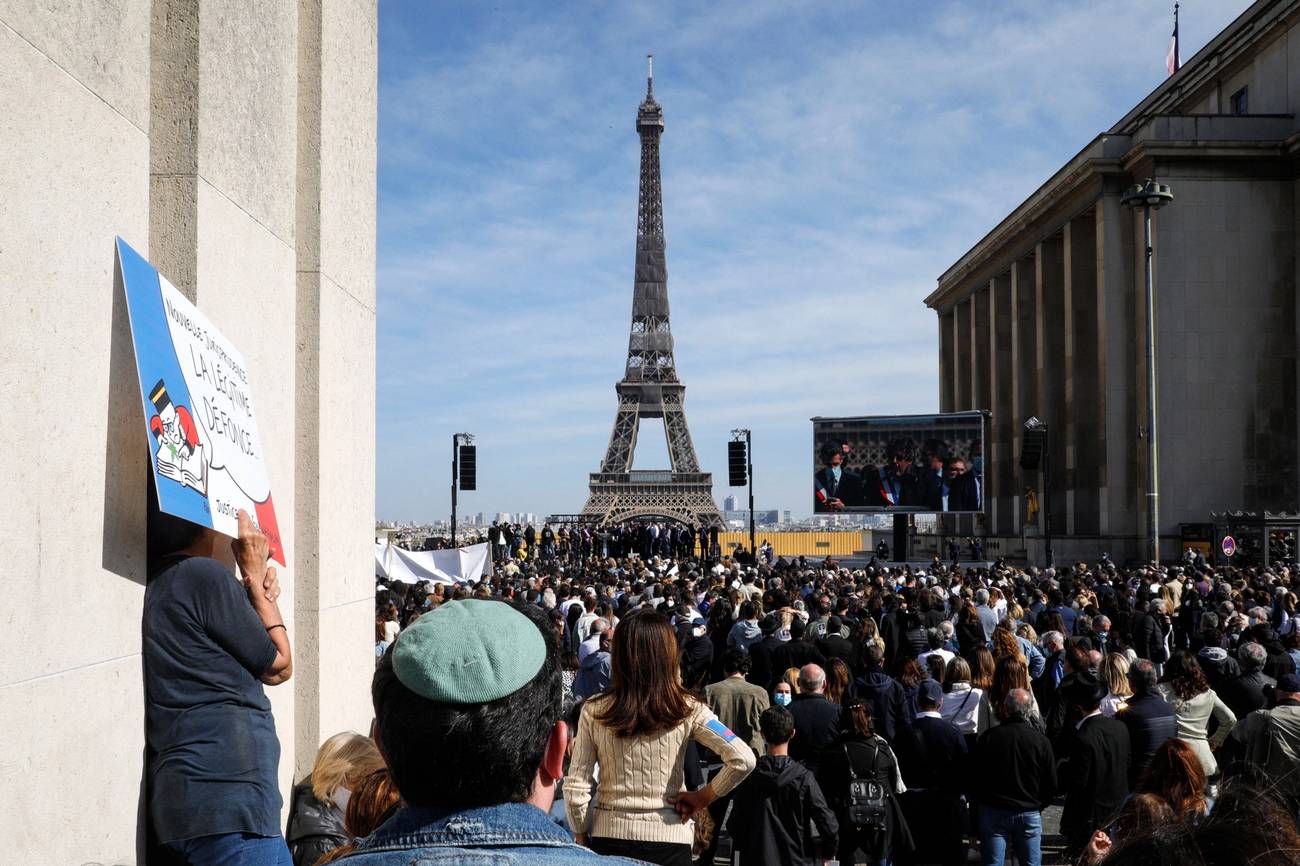The Metaphysics of the Sarah Halimi Affair
French law must protect people like the murdered Jewish schoolteacher



The killing of Sarah Halimi is much more than a snippet of local news. It is a major event.
Let’s review what happened.
We have a murder of unimaginable savagery.
We have a woman living alone, struck in the head, tortured, thrown from a window, killed.
We have an act that everyone, starting with the judges, agrees was antisemitic.
We have a killer, Kobili Traoré, known to be a radical Islamist, who attends a Salafist mosque, and who killed this mild-mannered and simple woman just because she wore a short wig and strove to serve God by observing His commandments.
And we have a legal system that, upon the conclusion of a prosecution, an appeal, and a final ruling, found that the criminal, although guilty, was not responsible for his actions and therefore could not be condemned.
I will not dwell on the violence, the cruelty, and the inhumanity of this decision.
I will not dwell on the pain of family and friends whom the judges, by this ill-conceived and iniquitous judgment, have chosen to leave alone with their little ghost wandering in the limbo of mute justice.
Nor will I dwell on the obscene absurdity of the commentators who tell us, “No, read the decision, Traoré was given a minimum sentence of 20 years!”: They well know that the guilty party, even in the judges’ view, is not “insane” but subject to “delirious episodes” and that the psychiatric institution in which he was placed will soon claim that a hospital is not a prison and that it has no choice but to release him.
The truth is that, however we look at this sequence of events, the result is the same.
It is incomprehensible.
It is absurd.
It is unintelligible and scandalous, even for lawyers.
It yields the awful feeling of a legal system submerged in triteness, lost in the mysteries of a reality that it can no longer measure.
This fine body of law, this extraordinary system, forged over centuries and designed to weigh the meticulous reality of facts and intentions, to place the word of the victim against that of the accused, and, after a sober deliberation that gives each party its chance, to cut to the heart and decide—well, this intricate machinery seems to have reached its limit here, to have shriveled up in the face of horror, and to have declared that it had broken down.
Like it or not, the Kobili Traorés of tomorrow will conclude that a Captagon-induced episode of delirium, attested by a motley handful of psychiatrists, means impunity.
Sarah Halimi’s peers and any woman living in a dangerous neighborhood in Paris or anywhere else, can draw the following conclusion: Today’s version of French law no longer protects them and, if they have just been murdered, will not honor their memory or their dignity.
And, beyond the law, language: Words, those that stand for crime and pain, those that we trust to distinguish reason from unreason, the words designed to denote what is true, just, and good, and, in so doing, attempt to reassure us (if only just a little) about our place in this world, these words appear to have lost their meaning.
When words no longer have meaning, the ground gives way beneath us.
And when the ground gives way—this ground, in particular—it is as if the world around us had left its orbit and was crumbling.
In a time more troubling than ever, when so many familiar markers are disappearing in the mist, this is an additional lapse that France could have done without.
So, in the face of this debacle of law and language, what are we to do?
How can we repair the tear in the fabric of which we are all a part?
I recently suggested that the new legislation proposed by the French president be known as “Sarah Halimi’s Law.” And I repeat that this would be a form of reparation.
Sarah Halimi’s family has suggested that new facts may soon appear and open the possibility of a retrial. In the last century, France knew a few such reversals, which, however rare, brought powerful consolation.
For the time being, one thing is certain.
The judges are wrong to take offense at the offense taken to their judgment or, in this case, to their failure to judge.
For this affair has been a sinister revelation for us all.
We are witnessing the collapse not just of the prosaic meaning of “law and order,” but the collapse of the spirit of a nation’s laws and its language, the way we order the relation between ourselves and that which gives our lives purpose, meaning, and strength.
And this problem, this abyss, this malaise at the heart of the republic’s democratic civilization, is something that we, the French people, must ponder and repair together.
Translated from the French by Steven B. Kennedy.
Bernard-Henri Lévy is a philosopher, activist, filmmaker, and author of more than 30 books including The Genius of Judaism, American Vertigo, Barbarism with a Human Face, Who Killed Daniel Pearl?, and The Empire and the Five Kings. His most recent film, Slava Ukraini, premiered nationwide on May 5, 2023.